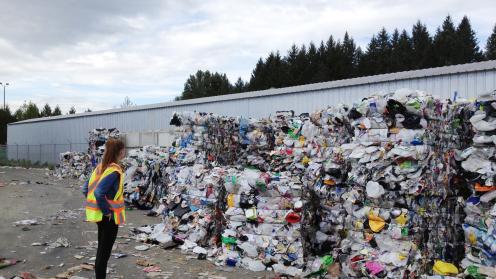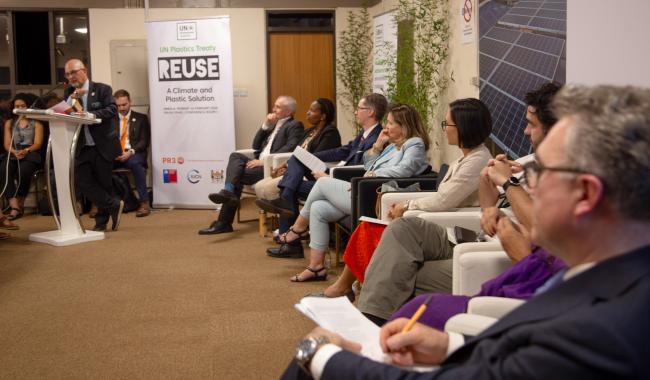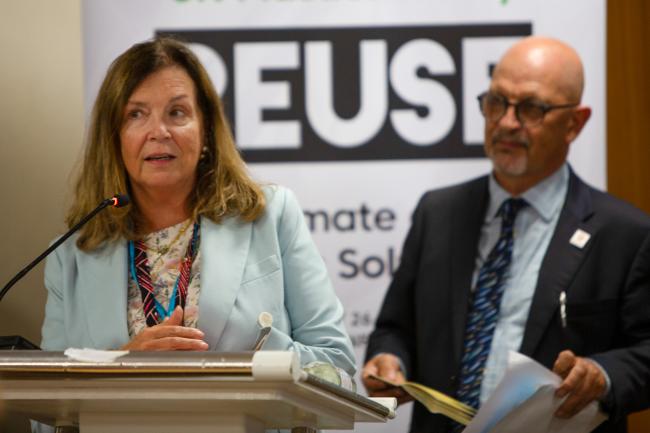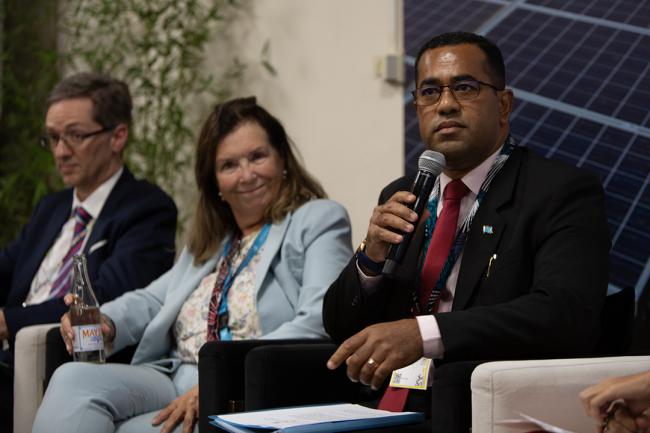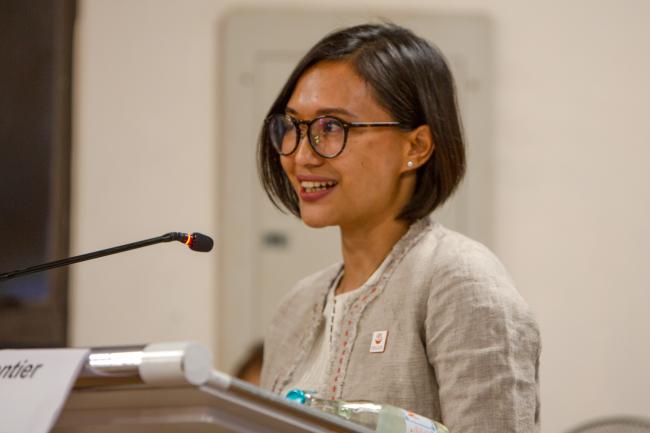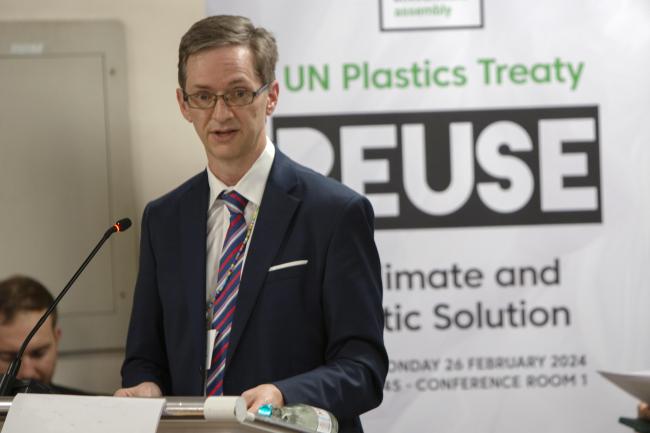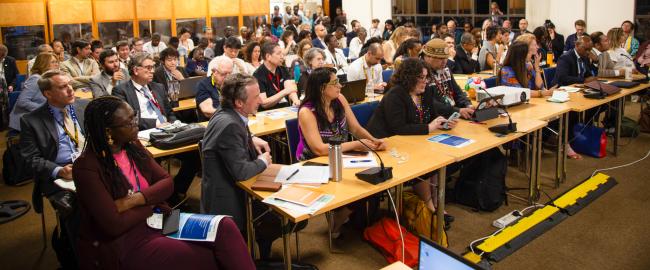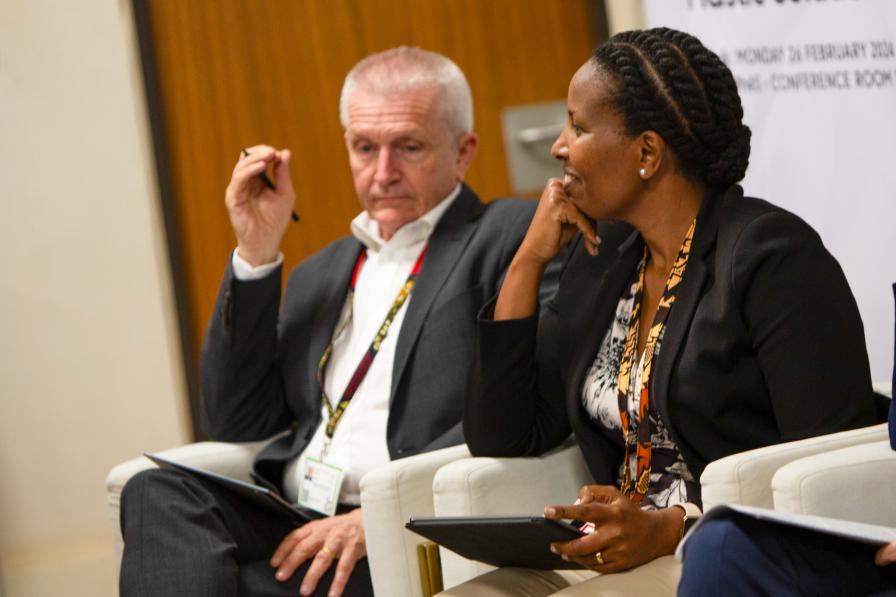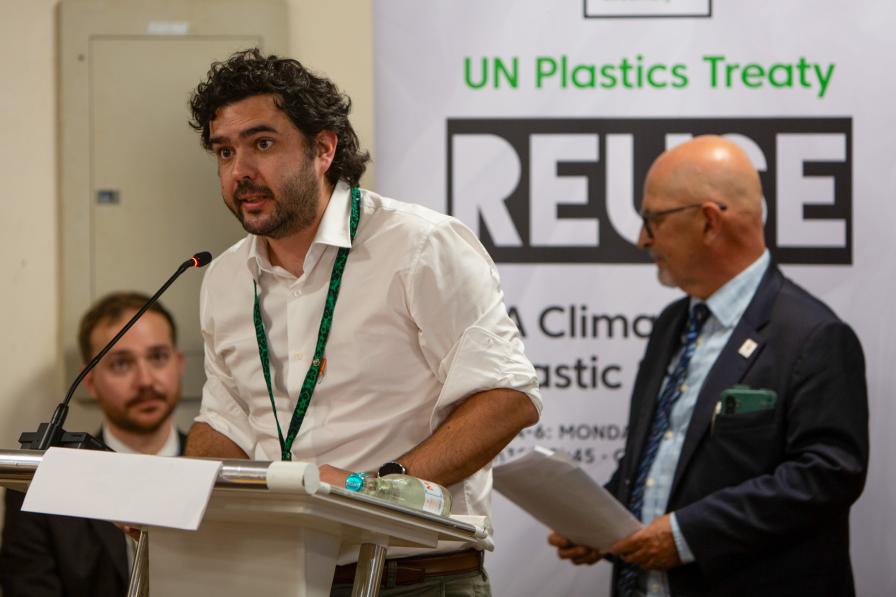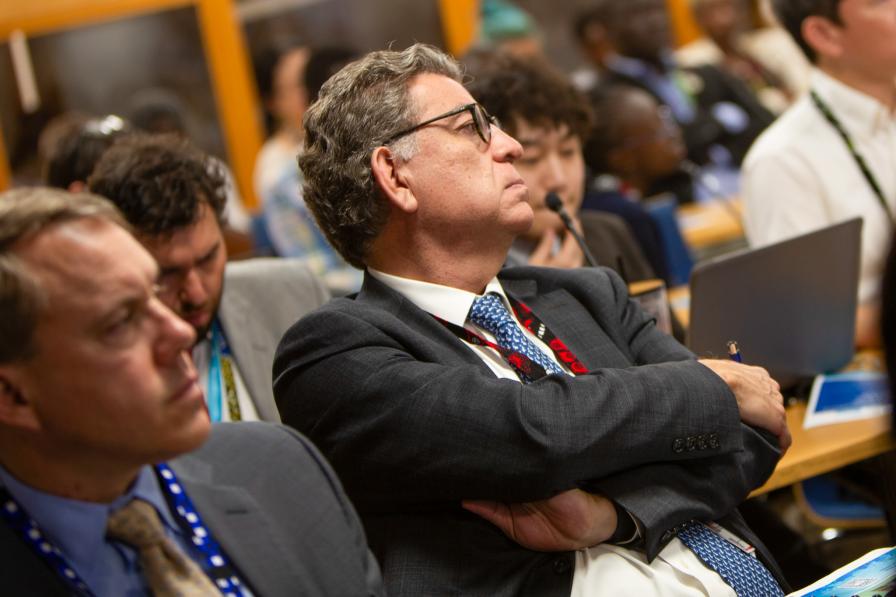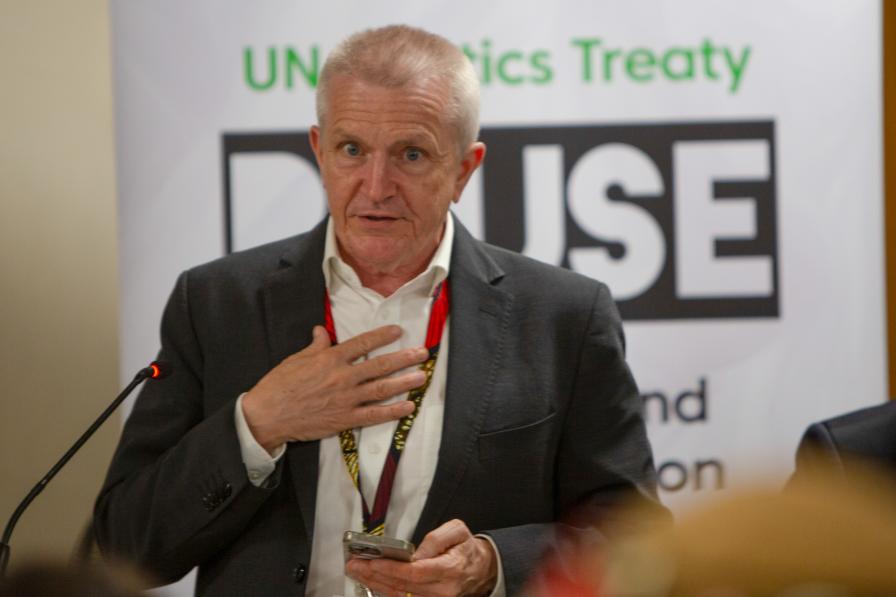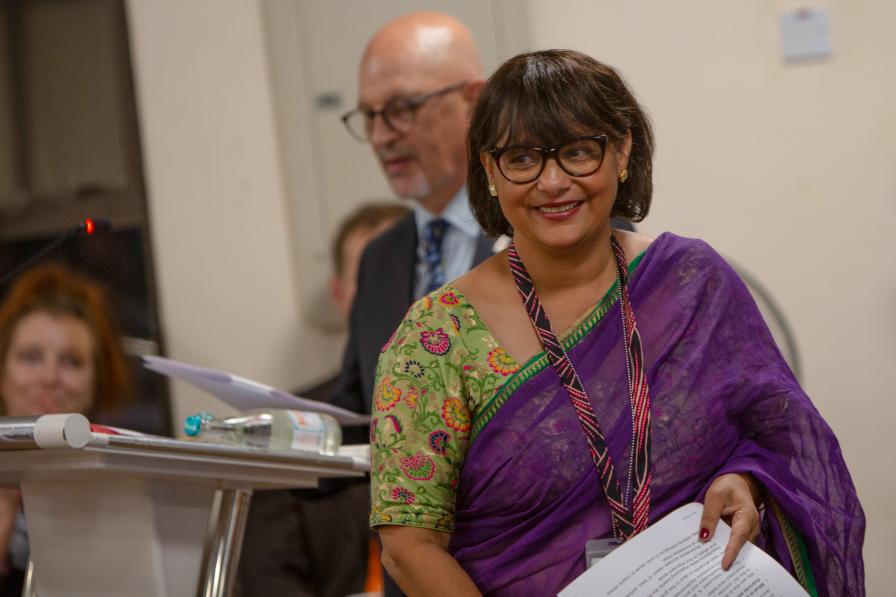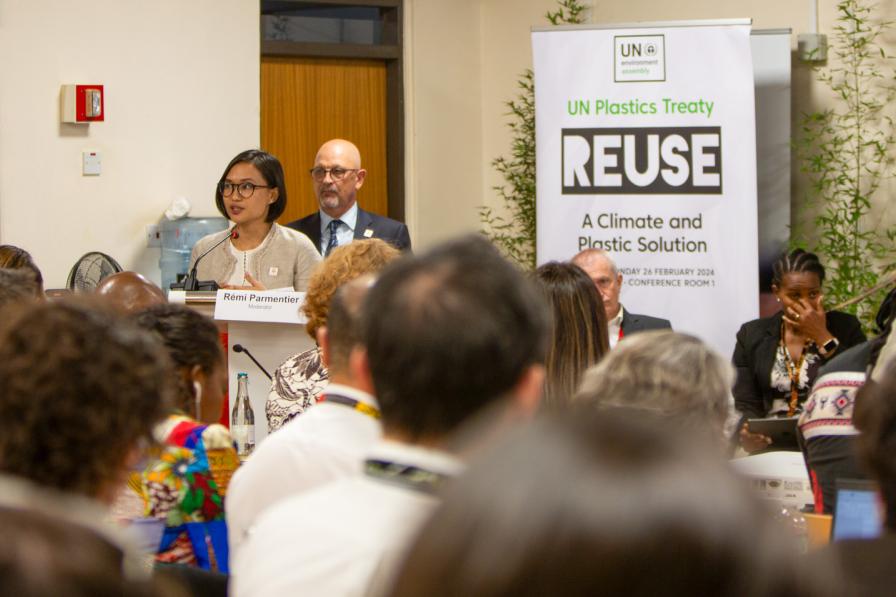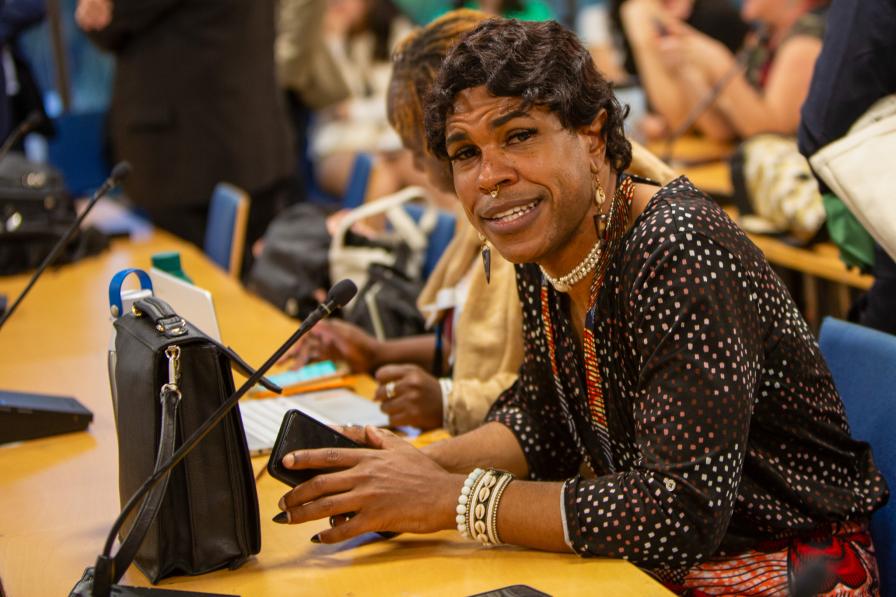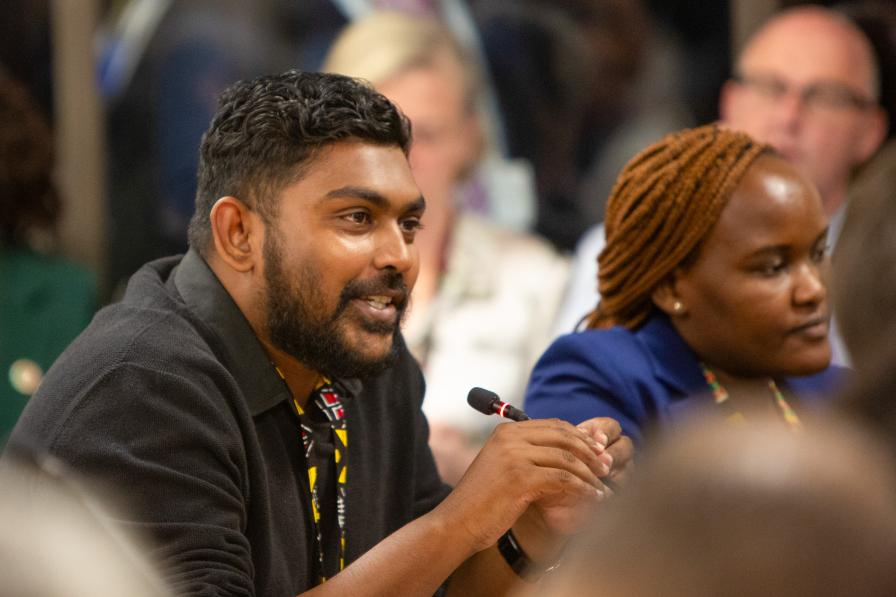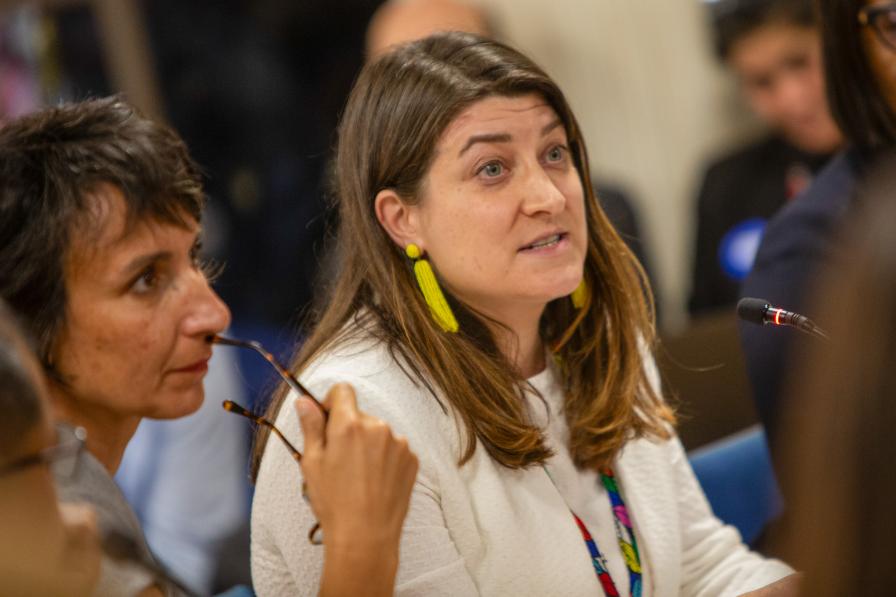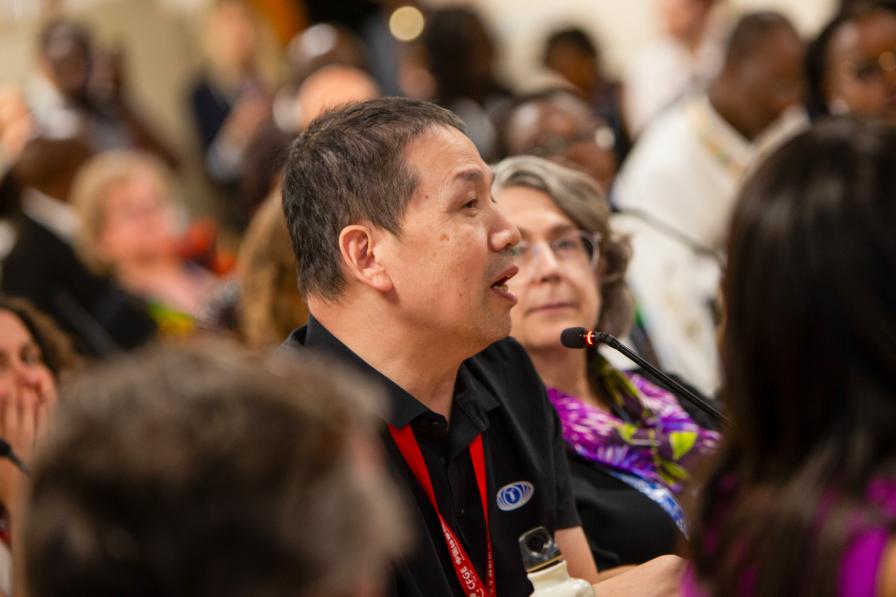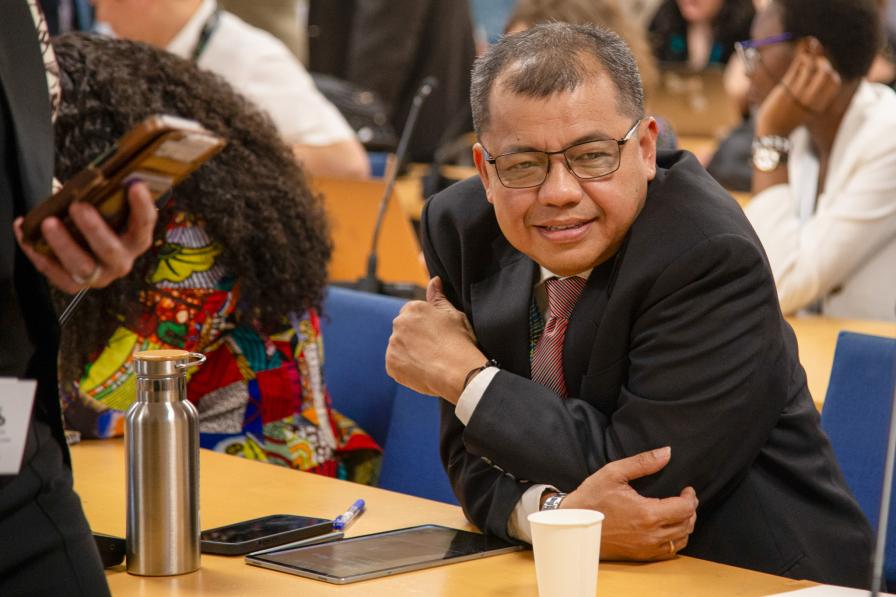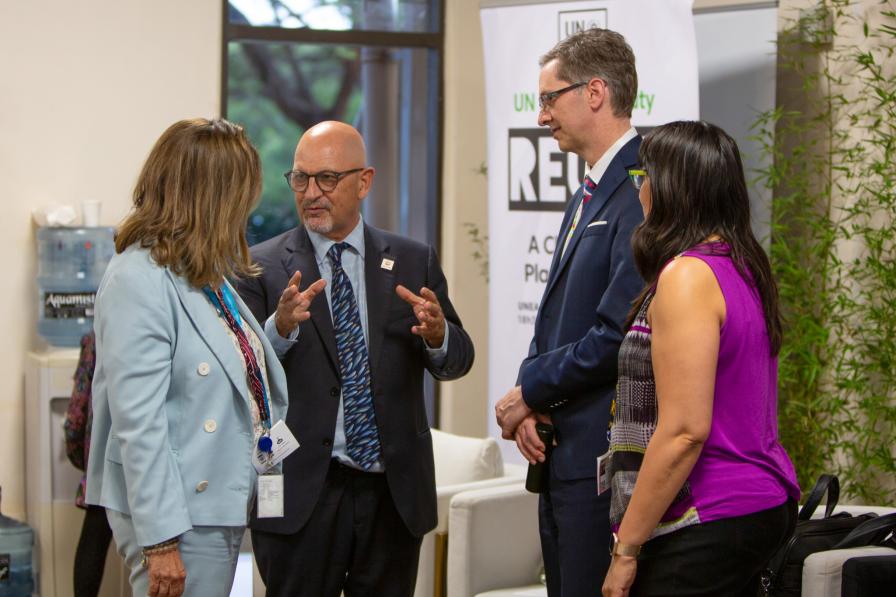About
Speakers during this side event discussed opportunities and challenges for promoting reuse systems, which can lead to a 90% reduction in packaging production and significant CO2 emissions reductions.
On the first evening of the sixth session of the UN Environment Assembly (UNEA-6), a packed room gathered to discuss the “reuse” part of the mantra “reduce, reuse, recycle”, which speakers emphasized should be observed in that order. Speakers highlighted the need to incorporate packaging reuse options into the negotiations on a new legally binding treaty on plastics. They recalled that reuse used to be the norm but noted that increased use of single-use plastics has decreased its role. They also discussed the importance of developing standards and called for work on harmonizing definitions of reuse and circularity to begin now. This side event was organized by the delegations of Chile and Fiji jointly with PR3: Global Alliance to Advance Reuse.
Facilitator Rémi Parmentier, Director, Varda Group, highlighted the event’s focus on packaging reuse, including the importance of design and performance standards and criteria, in the context of ongoing negotiations for a legally binging instrument on plastic pollution. He noted that reuse systems can lead to 90% reduction in packaging production and significant CO2 emissions reductions compared to single-use options.
Ambassador Maria Alejandra Guerra, Permanent Representative of Chile to the UN Environment Programme (UNEP), noted that less than 10% of plastic waste is currently recycled and the food and beverage sector is responsible for 9 of 10 items collected. She said Chile considers reuse critical as it prolongs the life of materials.
Filimoni Vosarogo, Minister of Lands and Natural Resources, Fiji, highlighted the need for safe and sustainable reuse systems and said these systems should be designed to be nature-positive and create jobs. He emphasized the need for standards and criteria to account for the opportunities and challenges small islands face. Minister Vosarogo recalled that ten years ago the outcome document of the 3rd UN Conference of Small Island Developing States (SIDS) held in Samoa in 2014 mentioned plastic wastes only once and in passing. He anticipated, by contrast, that the need to address plastics pollution will be on everyone’s mind when they gather for the May 2024 meeting of the 4th UN SIDS Conference in Antigua and Barbuda.
Tiza Mafira, PR3: The Global Alliance to Advance Reuse, emphasized:
- Reuse has better environmental impacts than recycling;
- Reuse is not an issue of packaging but a system that requires standards to instill confidence for investment in the reuse industry;
- The development of standards requires inclusivity and must ensure interoperability; and
- Reuse is not just a waste solution but also a climate solution.
Jyoti Mathur-Filipp, Executive Secretary, INC Secretariat, highlighted the revised draft text for the plastics treaty tabled for INC-4 (Ottawa, April 2024) mentions reuse 42 times. She noted the deadline for concluding negotiations on a legally binding instrument is the end of 2024, and called for governments, the private sector, the financial sector, and civil society to get involved and to deliver on this ambitious timeline.
Juliet Kabera, Director General of REMA, Rwanda and Co-chair of the High Ambition Coalition (HAC), said reuse requires a system and building a system is not always easy. She stated the High Ambition Coalition is calling for a top-down approach, collective targets, reductions in the production of polymers, and a circular approach to changing our relationship with plastic.
John Thompson, Deputy Assistant Secretary for Environment, Bureau of Oceans & International Environmental & Scientific Affairs, US Department of State, said reuse is an “underappreciated” solution. He noted the desire for an ambitious global agreement that aims to protect human health and highlighted the need to incentivize reuse and standards. Thompson said each country should consider which targets it could adopt.
Nicola Pochettino, Director of Environment and Natural Resources, European Investment Bank (EIB), said EIB sees the challenge of managing plastics as part of a wider challenge to develop a circular economy. He noted efforts to work with other multilateral development banks to promote circular economy projects, and called for defining what circularity means and how it can be measured in order to develop a business model to make circularity work. He identified a role for MDBs in derisking projects to help the private sector engage. Pochettino called on policy makers and other businesses to create a conducive regulatory system, stating “we can intervene when there are market failures, but we cannot intervene when there is regulatory failure.”
José Manuel Moller, CEO of Algramo and Senior Circular Economy Advisor WRAP, discussed his company’s reuse projects, noting that in one project 90% of consumers have returned packaging for over 10 years. He said reuse systems use local people, and suggested that reuse projects could leapfrog recycling. He closed by noting the opportunities to scale up with technology and standardization.
Stewart Maginnis, Deputy Director General, IUCN, regretted that draft text for the plastics treaty makes limited reference to biodiversity despite the clear link between the plastic pollution crisis and biodiversity loss crisis. He emphasized the need to address societal problems in combination, rather than with siloed approaches.
During the discussion, participants highlighted that reuse is a place-based solution that takes into account local realities. Representatives from African and Chinese NGOs called for more effective action in their respective countries. A representative from the private sector noted the need for supply chains that enable reuse and the decarbonization of logistics for reuse, given that many companies have made net zero commitments.
In closing remarks, Ambassador Guerra said the decision to launch negotiations for a plastics treaty was the most important resolution of the past three UNEA meetings. She encouraged participants to keep the momentum going and expressed hope that an agreement including strong reuse provisions would be reached as soon as possible.
Conveners
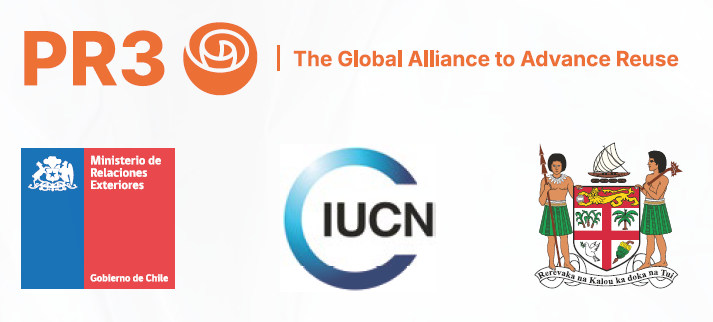
To receive free coverage of global environmental events delivered to your inbox, subscribe to the ENB Update newsletter.
All ENB photos are free to use with attribution. For this side event, please use: Photo by IISD/ENB | Angeles Estrada.
